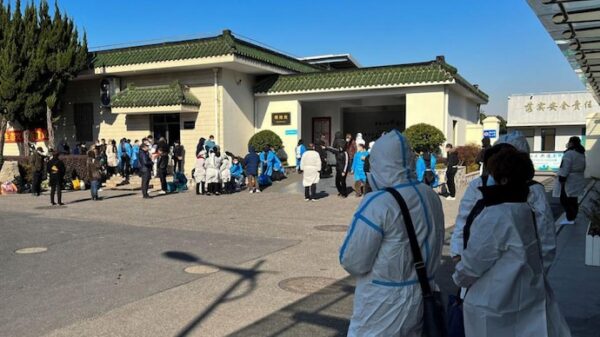chinese President Xi Jinping calls for self-reliance on technology at the Politburo session. Beijing publishes a position paper on the Russia-Ukraine war. India and China hold the 26th meeting of the Working Mechanism for Consultation and Coordination on Border Affairs in Beijing. Chinascope examines the contours of Beijing’s role in the Russia-Ukraine war – and much more – from China – and the world.
China over the week
After featuring extensively in the 19th Party Congress, ‘technological self-sufficiency’ has again taken a central position in the 20th Party Congress. On 22 February, Xi Jinping presided over a Politburo session where the emphasis was on promoting technological self-reliance through fundamental research.
We should strengthen the national science and technology capabilities, promote the strategic-oriented basic scientific research, path-breaking exploratory basic research, market-oriented applied basic research, and focus on the role of national laboratories to lead research institutions and to establish high-level research universities,” said Xi Jinping.During his remarks, Xi emphasised the international dimension of the technology competition, which involves the US and its alliance, without naming any particular country.
To cope with international competition in science and technology, to achieve a high level of self-reliance and self-improvement, to promote the construction of a new development pattern, to achieve high-quality development, we urgently need to strengthen basic research…to solve the key technology problems,” he said.The US campaign targeting China’s semiconductor industry has continued unabated with Washington convincing its allies to stop Chinese companies from accessing US technology. The US is now looking to cap the number of advanced semiconductors made by South Korean companies in China.
After much hype, Beijing published its 12-point ‘position paper’ on the Russia-Ukraine war on 24 February. It calls for “respecting the sovereignty of all countries” and “ceasing hostilities”. The war in Ukraine stands at a crossroads as the newly armed Ukrainian military is likely to push back against battered Russian forces.
Before its publication, there was some debate among China watchers on whether to call it a ‘position paper’ or a ‘peace plan’. But the released paper is more of a position statement, with some suggestions about ending the war and nothing about Beijing ending pro-Russia neutrality.
But experts believe China’s so-called neutrality is farcical as Beijing continues to purchase energy and food items from Russia and export electronics, cars and microprocessors to Moscow. According to Chinese customs data, the import by Beijing from its neighbour climbed 43 per cent last year to $114 billion.China’s position builds on the misplaced focus on the so-called legitimate security interests and concerns of parties implying a justification for Russia’s illegal invasion, blurring the roles of the aggressor and the aggressed,” said EU spokesperson Nabila Massrali.
Although India and China haven’t been involved in the war like European nations supplying arms and ammunition to Ukraine, US Secretary of State Antony Blinken has repeated some other US officials’ assertion that Beijing and New Delhi may have played a role in opposing the Kremlin from using nuclear weapons against Ukraine.
But what we did in that case was to not only message him very directly—I was engaged with my counterpart, Mr. Lavrov; others were engaged with theirs—but we urged and, I think, successfully, other countries that might have a little bit more influence with Russia these days, like China, but also other countries, like India, to engage him directly about their absolute opposition to any use of nuclear weapons,” Blinken said in an interview with Jeffrey Goldberg, Editor-in-Chief of The Atlantic.
Meanwhile, the US has assessed that Beijing is looking to deliver artillery and drones to Moscow as both Russia and Ukraine prepare for the spring offensive.Washington maintains that no weapons deliveries have taken place yet. But if Beijing does supply those weapons, it will likely result in sanctions against Zhongnanhai, according to President Joe Biden.





